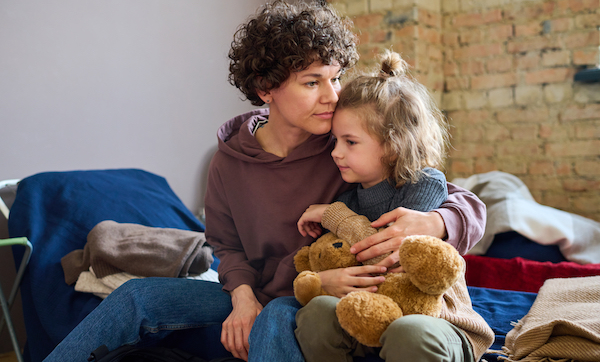Students with a Disability More Likely to Experience Homelessness than Abled Peers.

Students with a Disability More Likely to Experience Homelessness than Abled Peers
A new study found that nearly five percent of students with disabilities experience homelessness.
A version of this article originally appeared in Medical Xpress.
Nearly five percent of students with disabilities experience homelessness across seven states and Washington D.C., according to a new study by School of Public Health researchers.
Published in the journal Pediatrics, the study underscores the importance of high-quality education and connections to social services to ensure positive long-term outcomes for vulnerable students.
Study lead author Emily Bock (CAS’22), research assistant in the Rubinstein Lab, which is led by study senior author Eric Rubenstein, assistant professor of epidemiology, compiled data from state departments of education and federal homelessness data to quantify students with disabilities experiencing homelessness in the Northeastern and Mid-Atlantic United States. Paige Brochu, a PhD student in the Department of Environmental Health, is a coauthor of the study.
The team identified 1,051,701 students with disabilities out of a total of 5,510,704 students enrolled in public schools for the 2019-2020 school year and 214,062 students who were experiencing homelessness. The students ranged from 3 to 21 years old.
The researchers found that 4.7 percent of students with disabilities experienced homelessness across the seven states and Washington, D.C., compared with 3 percent among students without disabilities. The highest and lowest proportions of students with disabilities experiencing homelessness were seen in Washington, D.C., and New York and in Connecticut, respectively. Comparing 2018 to 2019 with 2019 to 2020 statistics in Massachusetts showed little change.
“Students with disabilities who are experiencing homelessness are a particularly vulnerable population and quantifying this population for the first time will provide policymakers with valuable information to be able to act to better support these students,” the authors write.
The researchers also expect increased rates of homelessness due to economic issues exacerbated by the pandemic.

While the data from this study did not provide evidence of a causal relationship between disabilities and homelessness, the researchers note that caring for a child with a disability can is costly in the US, and the financial burden that these families may experience could eventually lead to housing instability. Access to health insurance may also determine the level of care a child with a disability receives.
“An uninsured or underinsured family may find themselves unable to get their children to specialists for early intervention and therapies that can ameliorate symptoms of some developmental disabilities to the point of no longer meeting disability criteria,” the authors write. “There are also environmental factors associated with low socioeconomic status, such as air and drinking water pollution, that have been linked to an increased risk of disability.”